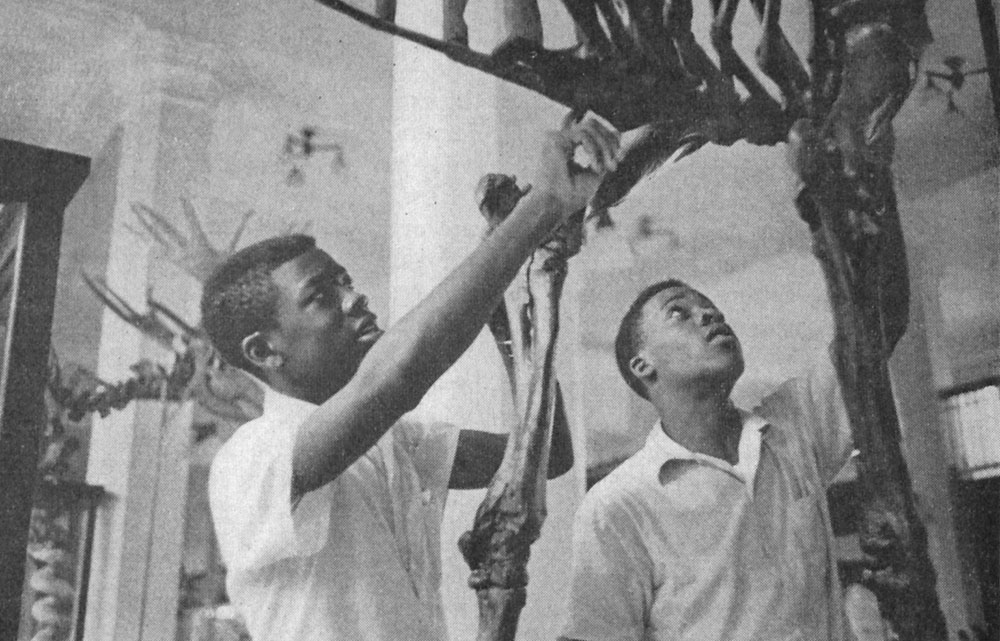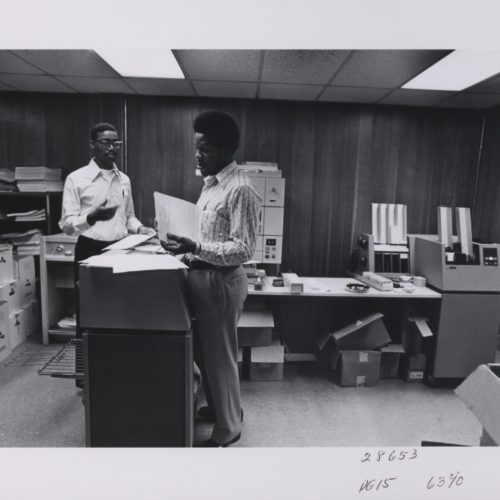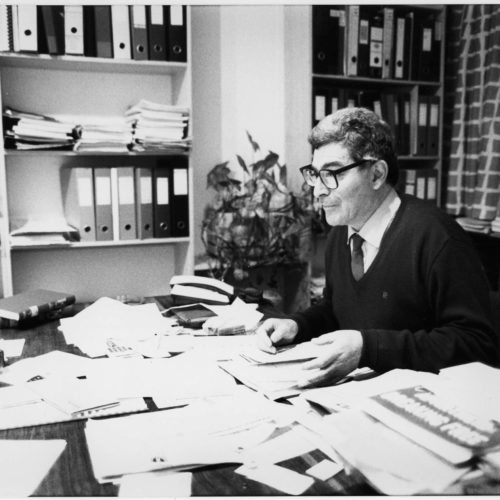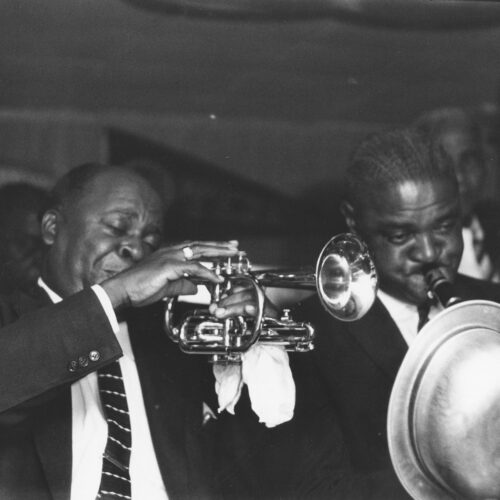RE:source, our online storytelling platform, provides the public with an opportunity to gain insight into recent archival research at RAC. It presents newly published reports submitted by RAC travel stipends recipients who have pursued their studies using our collections. In this edition of our series, the researchers’ reports showcase a wide range of collections that they have explored, covering different time periods, geographic locations, and disciplines. They cite records from numerous archives: Ford Foundation, Rockefeller Brothers Fund, Asian Cultural Council, Asia Society, JDR 3rd Fund, Commonwealth Fund, Institute of International Education, Rockefeller Foundation, and Laura Spelman Rockefeller Memorial. Also used are Nelson A. Rockefeller’s gubernatorial records, as well as the personal papers of Laurance S. Rockefeller, David Rockefeller, Nelson A. Rockefeller, Warren T. Lindquist, Cary Reich, and Blanchette Hooker Rockefeller. You are encouraged to read through these reports of our reading room visitors and see some of their latest archival discoveries.
“Private Funders and Private Wildlife Conservancies in Neoliberal Kenya (1980-2010)” by Kara Moskowitz
In “Private Funders and Private Wildlife Conservancies in Neoliberal Kenya (1980-2010),” Kara Moskowitz examines the rise of nongovernmental organizations and private game reserves in Kenya’s conservation and tourist sector, starting in the late twentieth century. In her report, Dr. Moskowitz reflects on the challenges of finding documentation relating to the work of NGOs, which are often not preserved in archival repositories. In this regard, the RAC has proven to be a vital resource for her to help understand the wildlife conservation transformations occurring in Kenya. Important actors involved with these developments, such as the Ford Foundation, the Rockefeller Brothers Fund, and conservation-minded Rockefeller family members, have all preserved their records, enabling public access for research. From her study of records in our archives, the researcher found that during the late twentieth century, there was a major shift in wildlife preservation as the Kenyan state saw its role diminished. Instead, private funders, NGOs, and private conservancies became more central to the project of protecting Kenya’s wildlife, while also benefiting from the international, often deep-pocketed, tourists who followed.
Kara Moskowitz is an associate professor of history at the University of Missouri – St. Louis. Her area of expertise is twentieth-century African history, with a particular interest on East Africa, international development, and decolonization.
“The Unusable Zoning Override Threat: Analyzing the State Urban Development Corporation’s Westchester Plans” by Kevin Slack
Kevin Slack’s research report, “The Unusable Zoning Override Threat: Analyzing the State Urban Development Corporation’s Westchester Plans,” is a study about the struggle between state and local authorities on housing policy in a suburban county. The failure to find affordable housing solutions in Westchester in the early 1970s was the result of a combination of factors. State government overreach, local political agendas, concerns about development, and an undercurrent of racism all worked against plans for the implementation of a modest plan to build mid- and low-income housing in communities in New York City’s northern suburbs. The researcher studied materials in a number of archival collections at the RAC, including both the gubernatorial records and the personal papers of Nelson Rockefeller (who was governor at the time). He also tapped into the papers of Cary Reich, a 1990s biographer of Nelson Rockefeller, who had interviewed for his book many of the key players in the Urban Development Corporation’s failed project. In his report, Kevin Slack reminds readers that the affordable housing crisis in New York’s suburbs has not gone away – now, fifty years later, the problem still awaits creative solutions.
Kevin Slack is a doctoral candidate in the Department of History at New York University. His research interests include US political and suburban history. He was a 2023 research stipend recipient at RAC.
“Listening to Each Other? – Opportunities and Challenges in Music Exchanges between the United States and the People’s Republic of China in the Late Twentieth Century” by Hon Ki Cheung
Cultural diplomacy played an important role in the establishment of relations between the United States and the People’s Republic of China in the 1970s. Hon Ki Cheung’s research at the RAC explored the nature and extent of music exchanges between the two countries. These programs were regularly fostered and coordinated by a number of US non-profit and philanthropic organizations, such as the Asian Cultural Council, the Asia Society, and the National Committee on United States-China Relations. While Dr. Cheung’s report, “Listening to Each Other? – Opportunities and Challenges in Music Exchanges between the United States and the People’s Republic of China in the Late Twentieth Century,” surveys some of the accomplishments of these programs, she also points out some of their troubling aspects. Because many of these initiatives originated with US-led organizations, philosophically they had a very US-centric approach to what constituted worthy exchanges. Excluded from many of the delegations coming from China were contemporary musical programs, which they deemed as “less significant” and politically more problematic than exchanges involving traditional and classical music. The US-based organizations also excluded a significant role for Chinese American musicians and programs, yet they sometimes struggled to define what actually constituted “Chinese” or “American” in their funding selection process. In the researcher’s view, these decisions ultimately limited the breadth of US-China musical exchanges, and thus were a missed opportunity for greater contact.
Hon Ki Cheung is an assistant professor of music theory at the Butler School of Music, University of Texas at Austin. She was a 2023 RAC research stipend recipient. Her research interests include music by Chinese composers in the twentieth and twenty-first centuries. Dr. Cheung has been studying how modern Chinese and Western societies and cultures influence pedagogy, the music-making process, and musical expressions in Chinese instrumental music, as well as the composers’ identity expressions in different cultural contexts.
“The Institute of International Education: From Prima Donna Idealism to Parastatal Behemoth and Neoliberal Broker (1919–2003)” by Elizabeth Spaeth
Elizabeth Spaeth’s research report, “The Institute of International Education: From Prima Donna Idealism to Parastatal Behemoth and Neoliberal Broker (1919–2003),” surveys almost a century of activities of an organization founded to foster international student and scholar exchanges. She notes that the IIE acted as an intermediary between states, private organizations, and academic institutions. For example, it administers the prestigious Fulbright awards. At RAC, she explored the records of the IIE, as well as those of other philanthropies that supported its efforts, such as the Rockefeller Foundation and the Commonwealth Fund, to trace how the United States came to rely on international students as proxies to end global conflicts, fortify the country’s geopolitical standing, advance capitalist economic development in the Global South, and keep US colleges financially afloat. Elizabeth Spaeth’s reports enables readers to see how her extensive use of RAC archival material is an important underpinning for her current dissertation research on the work of the IIE.
Elizabeth Spaeth is a doctoral student in US History at Indiana University Bloomington. Her research interests center on international students, migration, and social history in the nineteenth and twentieth centuries. She is a 2023-2024 HASTAC scholar (Humanities, Arts, Science, and Technology Alliance and Collaboratory), an alliance of more than 11,500 humanists, artists, social scientists, scientists and technologists working together to transform the future of learning for the 21st century.
About the RAC Research Stipend Program
The Rockefeller Archive Center offers a competitive research stipend program that provides individuals up to $5,000 for reimbursement of travel and accommodation expenses. Learn more on our Research Stipend page.



